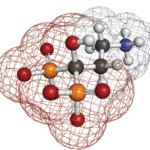Treatment with denosumab for patients with RA and glucocorticoid-induced osteoporosis led to greater increases in bone mineral density of the lumbar spine and hips of patients than treatment with risedronate.


Treatment with denosumab for patients with RA and glucocorticoid-induced osteoporosis led to greater increases in bone mineral density of the lumbar spine and hips of patients than treatment with risedronate.
Lisa Rapaport |
(Reuters Health)—It takes 12.4 months of bisphosphonate therapy to prevent one nonvertebral fracture per 100 postmenopausal women with osteoporosis, a meta-analysis of randomized clinical trials suggests.1 Researchers examined data on 10 randomized clinical trials with a total of 23,384 women who had an osteoporosis diagnosis based on either existing vertebral fractures or a bone mineral…

Sarah F. Keller, MD, & Marcy B. Bolster, MD |
It is well known that hip fractures are associated with significant morbidity and mortality: Mortality increases 15–25% in the year following a hip fracture.1–5 We know that treating osteoporosis prevents fractures and improves patient survival. But is there a relationship beyond this? Several studies have found that bisphosphonate therapy is associated with a reduction in…

ACR CONVERGENCE 2020—Attention to bone health in people at risk of developing, or who already have, osteoporosis is essential to reduce their increased risk for fragility fractures. Major risk factors for osteoporosis include being female, white, of small frame and having a family history of osteoporosis, as well as having secondary causes of osteoporosis, such…

The ACR Review Course featured eight talks providing a practical review of issues encountered by rheumatologists.

ACR CONVERGENCE 2020—Bisphosphonates are an important treatment for millions of older Americans with osteoporosis because the drugs inhibit osteoclastic bone resorption to reduce the risk of painful, debilitating fractures.1 More than 20 years ago, data emerged that bisphosphonates have a long terminal half-life.2 So after years of therapy, could some patients take a drug holiday?…

ACR Convergence 2020—At two plenary sessions, speakers highlighted key findings, including results on the QTc interval in patients on hydroxychloroquine, and data from a study on denosumab vs. alendronate for glucocorticoid-induced osteoporosis. The QTc Interval & Hydroxychloroquine The safety profile and optimal dosing of hydroxychloroquine has been a topic for decades because it is known…
Will Boggs, MD |
NEW YORK (Reuters Health)—Using bisphosphonates for several years is associated with increasing brittleness and decreasing toughness of bone, according to a new review. “Long-term treatment with bisphosphonates can have negative side effects in some people because of their effects on bone toughness [toughness = the energy that bone tissue can absorb before cracking],” David B….

In a clinical trial, researchers compared the efficacy of abaloparatide with alendronate in reducing the risk of fracture among postmenopausal women with osteoporosis. The findings suggest initial treatment with abaloparatide may result in greater vertebral fracture reduction than alendronate…
Megan Brooks |
NEW YORK (Reuters Health)—Denosumab injection delays of more than four months are associated with an increased risk of fracture compared with on-time injections, especially at the spine, new research indicates. “This study suggests the importance of timely denosumab administration when used for long-term osteoporosis management,” the researchers write in Annals of Internal Medicine.1 “When starting…